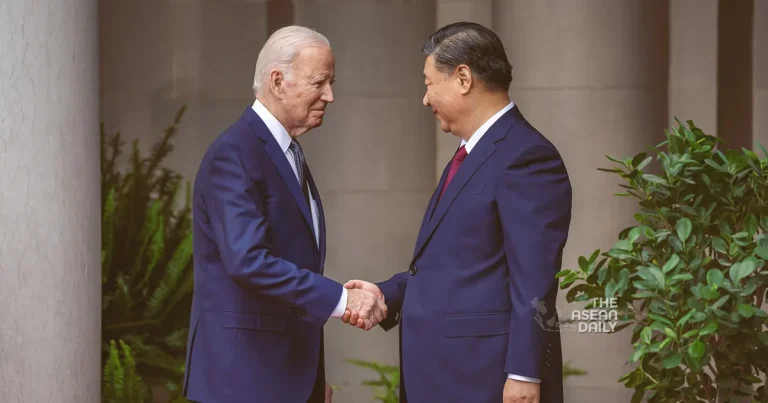18-11-2023 (SAN FRANCISCO) Chinese President Xi Jinping’s recent visit to the United States proved to be a public relations victory, as he received three standing ovations from the US business community during a dinner with executives in San Francisco. This trip marked his first visit to the US in six years, and it yielded several positive outcomes for both countries. President Xi and President Joe Biden reached agreements on fentanyl, military communications, and artificial intelligence on the sidelines of the Asia-Pacific Economic Cooperation summit.
Interestingly, the agreements reached were outcomes sought by the United States, rather than China, according to sources familiar with the trip. Despite this, President Xi achieved his own objectives, including securing US policy concessions in exchange for promises of cooperation. This has led to an easing of bilateral tensions, allowing both countries to focus more on economic growth. Additionally, President Xi took the opportunity to woo foreign investors who have been increasingly hesitant about investing in China.
During an APEC CEO summit, President Xi invited business communities worldwide to invest and expand their presence in China. He pledged to address concerns raised by foreign investors, such as intellectual property theft and data security. China’s economy has been experiencing a slowdown, and the country reported its first quarterly deficit in foreign direct investment earlier this month. Furthermore, the ruling Communist Party has faced political intrigues that have raised questions about President Xi’s decision-making, including the sudden removals of his foreign minister and defense minister.
Alexander Neill, an adjunct fellow at Hawaii’s Pacific Forum think-tank, believes that if the US and China can manage their differences, it will allow President Xi to focus more on his pressing domestic agenda.
One significant achievement during the summit was securing President Xi’s promise of Chinese cooperation in combating the flow of fentanyl to the United States. This was a top priority for President Biden, and the agreement was made on a “trust but verify” basis. In return, the US government removed a Chinese public security forensic institute from a Commerce Department trade sanction list. This action was long sought by China and is seen as a diplomatic win.
Critics, however, have expressed concerns about the removal of sanctions, arguing that it undermines the credibility of US entity listings and the moral authority of the Biden administration. The Republican-led House of Representative’s select committee on China highlighted these concerns.
While Biden touted the agreement to resume military dialogues with China as a success, experts believe that it is unlikely to change Chinese military behavior that the US perceives as dangerous. China’s intercepts of US ships and aircraft in international waters have led to several near-misses. Craig Singleton, a China expert at the Foundation for Defense of Democracies, believes that China fears hotlines could be used as a pretext for a US presence in areas it claims as its own.
President Xi emphasized China’s desire for peaceful coexistence with the United States, suggesting that China is ready to be a “partner and friend.” These statements were aimed at assuaging concerns within the business community, which has been alarmed by China’s crackdown on various industries and the use of exit bans and detentions against executives. President Xi’s televised garden walk with President Biden and the respectful reception he received from his American hosts were highlighted in China’s controlled media to demonstrate his ability to manage the country’s most important economic and political relationship.
Drew Thompson, a former Pentagon official and scholar at the National University of Singapore, believes that President Xi may have realized that exaggerating the American threat harms China’s standing in the party and the party itself. The debate about whether China is investible poses a significant problem for the country. However, President Xi did emphasize to President Biden the need to view US-China relations in the context of global transformations unseen in a century, suggesting that China, along with Russia, is reshaping the US-led international system.
Overall, pragmatism seemed to take precedence over ideology during President Xi’s visit. China recognizes the importance of maintaining normal relations with the US and Western countries for its economic progress. This was a fundamental driving force behind the meeting between President Xi and President Biden.




